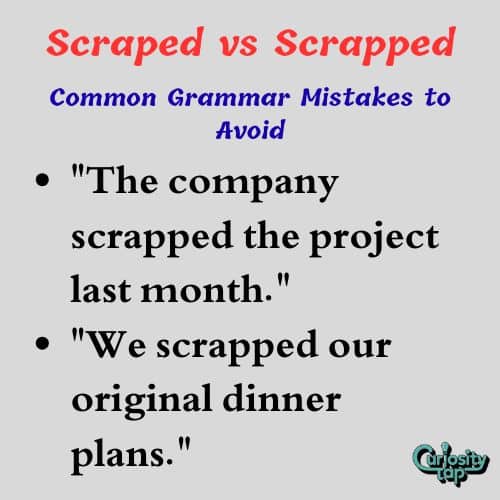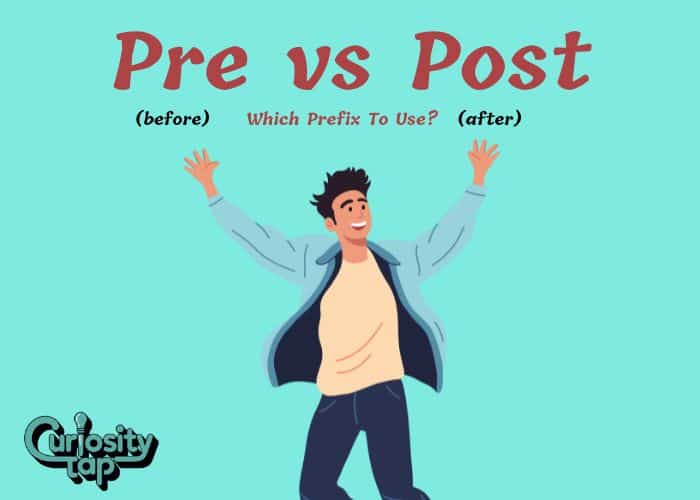Have you ever typed “web scrapping” instead of “web scraping” in an email to your boss? Or maybe you’ve written about “scrapping ice off your windshield” when you meant something entirely different? You’re not alone.
These two seemingly innocent words have caused more confusion, autocorrect fails, and embarrassing mistakes than most people care to admit.
The truth is, scrap and scrape are among the most commonly confused word pairs in the English language.
They look similar, sound almost identical, and yet they mean completely different things. One wrong letter can change your entire message from talking about discarding something to describing a surface action.
Whether you’re a student trying to improve your writing skills, a professional aiming for clear communication, or someone who simply wants to master these tricky words once and for all, this guide will help you understand the difference and use each word correctly in every situation.
What Do Scrap and Scrape Actually Mean?
Understanding the fundamental definitions of these words is the first step to using them correctly. Let’s break down each word and explore how they function in different contexts.
The Complete Definition of Scrap
Scrap can function as both a noun and a verb, and its meaning revolves around the concept of discarding, leftovers, or small pieces.
As a noun, scrap refers to:
- Small pieces or fragments of something
- Leftover material that’s often considered waste
- A brief fight or argument
- Something of little value or use
As a verb, scrap means to:
- Discard or throw away something
- Cancel or abandon a plan or project
- Fight or argue briefly
The Complete Definition of Scrape
Scrape also works as both a noun and a verb, but its meaning centers on surface actions and difficult situations.
As a noun, scrape refers to:
- A mark or injury caused by rubbing against a rough surface
- A difficult or awkward situation
- The action of scraping something
As a verb, scrape means to:
- Remove something by rubbing it against a surface
- Make a harsh, grating sound
- Barely manage to achieve something
- Gather or collect something with difficulty
Why These Words Cause So Much Confusion
The confusion between scrap and scrape isn’t just about spelling it’s rooted in how our brains process similar-looking words. Here’s why these words trip up even experienced writers:
Visual Similarity: Both words start with “scra” and end with “p.” The only difference is that scrape has an extra “e” at the end. When reading quickly, our brains often fill in the gaps.
Sound Similarity: In casual speech, the pronunciation difference is subtle. Many people pronounce both words almost identically, making it harder to distinguish them in conversation.
Contextual Overlap: Both words can appear in similar contexts. For example, you might scrap (discard) metal or scrape (remove) paint from metal, leading to natural confusion.
Autocorrect Issues: Modern spellcheck systems sometimes suggest the wrong word, especially when the context could work for either option.
Real-World Examples That Make the Difference Clear
Nothing beats practical examples to understand how these words work in real situations. Let’s explore various scenarios where each word shines.
When to Use Scrap: Practical Examples
In everyday conversation:
- “Jessica decided to scrap her weekend plans because of the weather.”
- “The old car was sold for scrap metal to the recycling center.”
- “After the presentation failed, the team had to scrap the entire project.”
In business and work contexts:
- “The company will scrap the outdated software system next month.”
- “We found some scrap paper in the office drawer for note-taking.”
- “The marketing team scrapped the campaign due to budget constraints.”
In casual situations:
- “Tom got into a scrap with his neighbor over the fence.”
- “She used scrap fabric to make a beautiful quilt.”
- “Don’t throw away those scrap pieces they might be useful later.”
When to Use Scrape: Practical Examples
In everyday actions:
- “Maria had to scrape the ice off her car windshield this morning.”
- “The child got a scrape on his knee from falling off the bike.”
- “He managed to scrape together enough money for the concert tickets.”
In technical and work contexts:
- “The data team will scrape information from various websites for analysis.”
- “The paint began to scrape off the old wooden fence.”
- “She could barely scrape by on her current salary.”
In challenging situations:
- “After the mistake, he found himself in a real scrape with his boss.”
- “The sound of nails scraping against the chalkboard was unbearable.”
- “They had to scrape the bottom of the barrel to find qualified candidates.”
The Technical Side: Web Scraping vs. Web Scrapping
One of the most common mistakes happens in the technology and data world. Let’s clear up this confusion once and for all.
Web Scraping (correct term) refers to the automated process of extracting data from websites using specialized software or scripts. It’s a legitimate technique used by businesses, researchers, and developers to gather information from the internet.
Web Scrapping (incorrect term) would technically mean discarding or throwing away web content, which doesn’t make sense in the context of data collection.
Why This Mistake Happens So Often
Professional writers and developers often mix up these terms because:
- The words look similar when typing quickly
- Autocorrect sometimes suggests the wrong spelling
- The technical context can make people second-guess themselves
- The mistake has become so common that some people think both spellings are acceptable
Remember: If you’re talking about data extraction, it’s always scraping (with an “e”). If you’re talking about discarding something, it’s scrapping (without an “e”).
Memory Tricks to Master the Difference
Here are some proven techniques to help you remember which word to use in any situation:
Visual Memory Tricks
Scrap = Discard: Think of scrap as something that’s been “cropped” or cut away. The word ends abruptly, just like discarded items.
Scrape = Surface: The “e” at the end of scrape looks like it’s being scraped off the word, reminding you of surface actions.
Contextual Memory Tricks
Scrap Metal: Remember that scrap often appears with “metal” in recycling contexts. Both words are short and direct.
Scrape Ice: Picture the action of scraping ice off a windshield. The motion is longer, just like the word with its extra “e.”
Pronunciation Practice
Practice saying both words distinctly:
- Scrap (rhymes with “trap”)
- Scrape (rhymes with “tape”)
The slight difference in pronunciation can help reinforce the spelling difference in your mind.

Common Grammar Mistakes to Avoid
Even when you know the difference between scrap and scrape, there are still grammar pitfalls to watch out for:
Past Tense Confusion
Scrapped (past tense of scrap):
- “The company scrapped the project last month.”
- “We scrapped our original dinner plans.”
Scraped (past tense of scrape):
- “She scraped her knee on the pavement.”
- “The team scraped together enough funding.”
Phrasal Verb Mistakes
Scrape by (to barely manage):
- “Despite the challenges, the family managed to scrape by.”
Scrape up (to gather with difficulty):
- “Can you scrape up some cash for the trip?”
Scrape together (to collect with effort):
- “They had to scrape together a last-minute presentation.”
The Psychology Behind Word Confusion
Understanding why we mix up similar words can help prevent future mistakes. Here’s what happens in our brains:
Pattern Recognition: Our brains are wired to recognize patterns quickly. When we see “scra-“ at the beginning of a word, we often auto-complete it based on context rather than careful reading.
Frequency Bias: If you use one word more often than the other, your brain might default to the familiar option even when the less common word is correct.
Context Switching: When switching between different contexts (like from technical writing to casual conversation), it’s easy to carry over the wrong word choice.
Cognitive Load: When we’re focused on the meaning of what we’re writing, we sometimes pay less attention to precise word choice.
Bonus Tip: The “E” Rule for Professional Writing
Here’s a professional writing hack that many editors use: When in doubt, think about the action or result.
If the action involves touching or affecting a surface, use scrape (with an “e”). If the action involves getting rid of something entirely, use scrap (no “e”).
This rule works about 90% of the time and can save you from embarrassing mistakes in important documents.
Expert Advice: What to Do and What to Avoid
What Professional Writers Recommend
Do this:
- Read your work aloud to catch pronunciation-based errors
- Use the search function to check all instances of “scrap” and “scrape” in your document
- Create a personal reference sheet with examples that relate to your work
- Practice using both words in different contexts regularly
Avoid this:
- Relying solely on spellcheck for word choice
- Assuming that context will make your meaning clear
- Using both words interchangeably in casual writing
- Ignoring the mistake when others point it out
Building Long-Term Language Skills
Consistent practice is key to mastering these commonly confused words. Set aside time each week to practice writing sentences with both words. The more you use them correctly, the more natural it becomes.
Read widely in different genres and contexts. Notice how professional writers use these words in various situations. This exposure helps build your intuitive understanding of correct usage.
FAQ Section
What’s the main difference between scrap and scrape?
Scrap means to discard or throw away something, while scrape means to remove something from a surface by rubbing. The key difference is that scrap involves getting rid of something entirely, while scrape involves surface action or removal.
Is it web scraping or web scrapping?
It’s web scraping (with an “e”). This term refers to the automated data extraction from websites. Web scrapping would incorrectly suggest discarding web content, which doesn’t make sense in the context of data collection.
How can I remember which word to use?
Remember that scrape ends with an “e” and involves surface actions think of the “e” being scraped off. Scrap is shorter and more abrupt, just like the action of discarding something completely. Practice using both words in sentences regularly.
Are there other words commonly confused with scrap and scrape?
Yes, other commonly confused word pairs include affect vs. effect, their vs. there vs. they’re, and lose vs. loose. These words share similar characteristics they look or sound alike but have different meanings. Mastering word differences requires consistent practice and attention to context.
Conclusion
Mastering the difference between scrap and scrape isn’t just about avoiding embarrassing typos it’s about communicating with precision and confidence in every situation.
Whether you’re drafting a professional email about web scraping data, explaining how you scraped together funds for a project, or deciding to scrap an outdated plan, choosing the right word makes your message crystal clear.
Remember, scrap is about discarding and getting rid of things entirely, while scrape involves surface actions and difficult situations. With the memory tricks, real-world examples, and expert advice you’ve learned today, you’ll never again have to second-guess which word to use.
The next time you see someone mix up these words, you’ll not only catch the mistake but also have the knowledge to help them scrape away their confusion and scrap their word-choice worries for good.
Language mastery is a journey, and conquering commonly confused words like these is a significant step toward effective communication and professional writing success.
Read more knowledgeable blogs on Curiosity Tap
Is this article helpful?

Jackson Pearson is a passionate educator and language enthusiast behind the blog Jackson Pearson. With years of experience in teaching and writing, he specializes in simplifying complex grammar rules, breaking down tricky vocabulary, and crafting learning guides that are both engaging and practical. His mission is to help readers boost their English skills whether they’re beginners or brushing up for fluency. Through every article, Jackson brings clarity, structure, and a spark of curiosity to the world of English learning.



